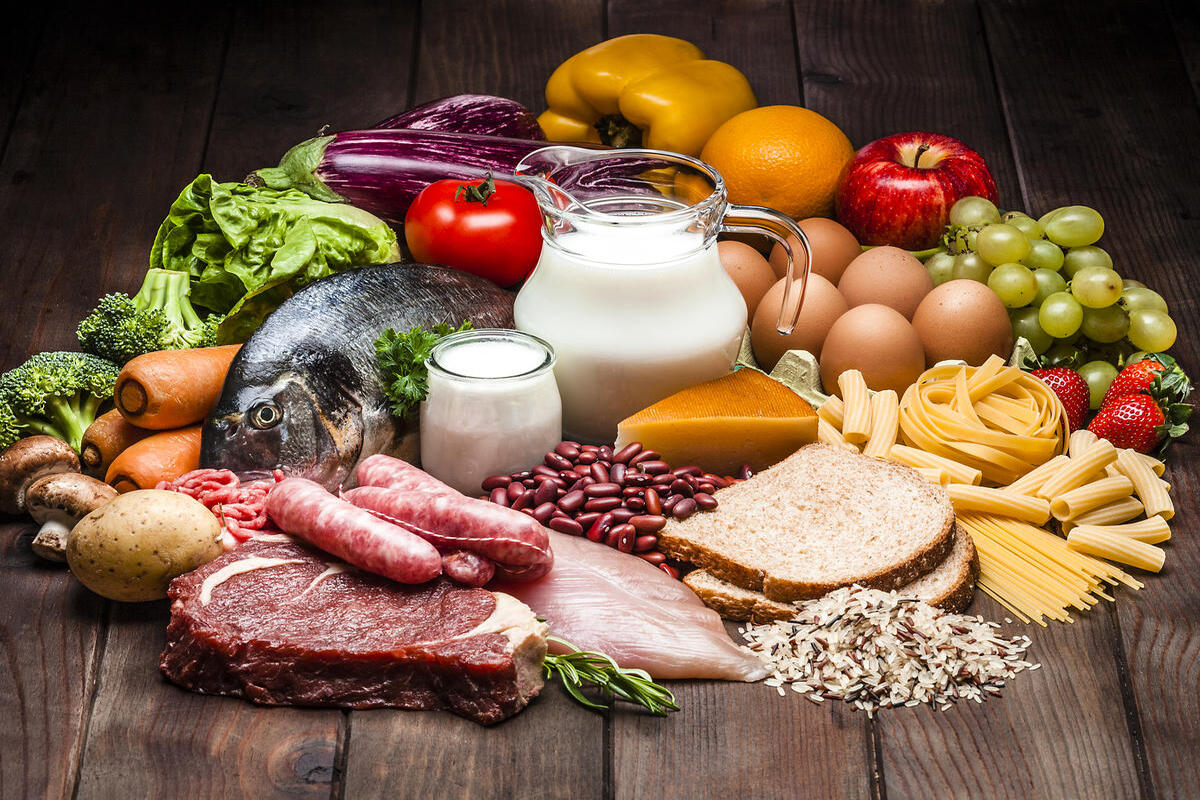Is India set to become the new beauty destination for global brands?
The Indian beauty market is estimated to reach $2.27 billion by 2028, with a CAGR of 10.91% during the forecast period (2023-2028).
Prioritize balancing your food intake with your goals and activity level to improve your health, and energy and achieve long-term weight control.

Balanced diet (Photo; istock)
When, what type, and how much protein should you eat in a day? How do you build and maintain healthy bone and muscles, repair your body, regulate hormones, improve metabolism and manage your weight?
Forget about fad diets restricting the intake of other nutrients (protein, carbohydrate, or fat) that can lead to health deficiencies, hormonal imbalance, and weight problems. Prioritize balancing your food intake with your goals and activity level to improve your health, and energy and achieve long-term weight control.
Distribute your protein intake throughout the day
Advertisement
Make it a point to eat a well-balanced diet, by including protein with every meal and snack to avoid hunger pangs, to get enough recovery after every workout, and to sustain my energy level until evening.
Try eating fruits or a piece of toast only for easy-to-grab snacks in the past, but a lack of protein would always make me crave more food during the day that could even reach until late at night. I realized the importance of eating the right amount and type of protein for every snack or meal that I consume.
Protein is the key to weight management. Studies show that it promotes satiety better than other macronutrients. You also burn more calories while digesting and metabolizing food – this is called the thermic effect of food (TEF). Protein has a much TEF (20-30%) as compared to carbohydrates (5-10%) and fat (0-3%).
Instead of including all your protein sources in one to two meals in a day, strategically distribute your protein intake throughout the day, to effectively regulate your appetite, cravings, and energy level. A 2015 study conducted by the University of Missouri-Columbia shows that consuming a high-protein breakfast can lose body mass and reduce daily food intake by 400 calories.
To effectively gain muscles (or avoid muscle loss) while losing body fat, get 20 to 30 grams (equivalent to one serving or one palm size of lean meat, chicken without bone and skin, and seafood) of protein for every main meal and 10 to 15 grams for snacks.
Always aim for healthy carbs, good fat, and enough protein for your main meals and snacks. Eat your post-workout meal/snack 15 to 60 minutes after your workout for your muscles to effectively recover and restore energy.
Here’s how you can always incorporate protein with your healthy carbs and good fat.
BREAKFAST
LUNCH AND DINNER
SNACK
Your protein intake should match your unique profile
Match your needs with the right amount of nutrients to achieve your desired goals. Like with carb and fat intake, you need to eat the recommended amount of protein based on your body weight, fitness goals, age, gender, and current health condition.
Eating more the required amount of protein can result in fat gain especially if you are sedentary. You need to use the extra protein by moving and building muscles and sufficient rest. In fact, your body has a limit when it comes to absorbing protein daily and during each meal.
On the other hand, exercising more and eating less protein can also affect your body composition -you can lose muscle, you will feel weaker, your metabolism will slow down and you will gain body fat.
For optimal health and weight management, you should exercise to lose body fat and build or retain muscle mass. Prolonged and intense workouts require one to eat the appropriate amount of nutrients at the right time to prevent muscle wasting.
The Recommended Dietary Allowance (RDA) based on various nutritional organizations worldwide differs for every individual. 10 to 35 percent of daily intake should come from protein to avoid deficiency, effectively function well, and achieve your fitness goals.
Sedentary to average adults- should consume .8 to 1.2 grams of protein per kilogram of body weight to achieve fullness and control weight effectively.
Active and athletic individuals need to consume at least 1.2 to 2 grams of protein per kilogram of body weight. You need more if you are trying to build more muscle mass and currently doing prolonged and intense endurance activities.
Older people should consume at least 1 gram of protein per kilogram of body weight to avoid the loss of lean mass occurs naturally with age.
Always choose quality foods high in protein, fiber, and good fat to avoid weight gain while improving your exercise performance and muscle recovery. Avoid protein foods high in saturated fat and refined carbs:
Advertisement